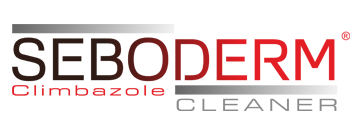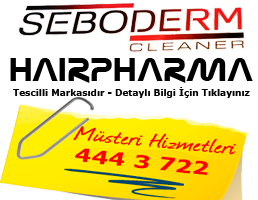Search Options
- Advanced Search
- Search Help
Search Menu
Sign up / Log in
- Sign up / Log in Institutional / Athens login
English
- Deutsch
Academic edition
- Corporate edition
Skip to: Main content Side column
- Home
- Contact Us
Look Inside Get Access
Find out how to access preview-only content
Mycopathologia
08-1999, Volume 147, Issue 2, pp 63-65
The antifungal action of dandruff shampoos
- Amelia C. Bulmer,
- Glenn S. Bulmer
- … show all 2 hide
Citations
Purchase on Springer.com
$39.95 / €34.95 / £29.95*
Rent the article at a discount
Rent now
* Final gross prices may vary according to local VAT.
Get Access
Abstract
The disease commonly known as “dandruff” is caused by numerous host factors in conjunction with the normal flora yeast Malassezia furfur (Pityrosporumovale). Indeed, clinical studies have shown that administration of antifungal agents correlates with an improved clinical condition. Almost all commercially available hair shampoos publicize that they contain some form of antifungal agent(s). However, few studies have been published in which antifungal activity of commercially available hair shampoos have been contrasted experimentally. In this study six commercially available shampoos (in the Philippines) were assessed for antifungal activity against a human (dandruff) isolate of M. furfur: (a) Head & Shoulders (Proctor & Gamble); (b) Gard Violet (Colgate-Palmolive); (c) Nizoral 1% (Janssen); (d)Nizoral 2% (Janssen); (e) Pantene Blue (Proctor & Gamble); and (f) Selsun Blue (Abbott). The results demonstrated that all six of the assayed hair shampoos have some antifungal effect on the test yeast. However, there was consider variation in potency of antifungal activity. Nizoral 1% and Nizoral 2% shampoo preparations were the most effective. The 1% Nizoral shampoo was consistently 10X better at killing yeast cells than the next closest rival shampoo. The 2% Nizoral shampoo was 10X better than the Nizoral 1% product and 100 times better than any of the other products assayed. The study demonstrated that shampoos containing a proven antifungal compound were the most effective in controlling the causative yeast.
This revised version was published online in June 2006 with corrections to the Cover Date.
Page %P
Close Plain text
Page 1
No Body Text — translate me!
Page 2
No Body Text — translate me!
Look
Inside
Other actions
- Export citation
- Register for Journal Updates
- About This Journal
- Reprints and Permissions
- Add to Papers
Share
Share this content on Facebook Share this content on Twitter Share this content on LinkedIn
Related Content
Supplementary Material (0)
References (5)
- Kane J, Summerbell RC.Trichophyton, Microsporum, Epidermophyton, and agents of superficial mycoses. In: Murray PR, Barron EJ, Pfaller MA, Tenover FC, Yolken RH, eds. Manual of Clinical Microbiology, 7th edn. American Society for Microbiology Press, Washington, DC, 1999; 1275–1294.
- Bergbrant IM. Seborrhoeic dermatitis and Pityrosporum yeasts. Curr Top Med Mycol, 1995; 6: 95–112.
- Ellis DH.Clinical Mycology: The Human Opportunistic Mycoses, Gillingham Printers Pty Ltd, Underdale, Australia, 1994.
- Kwon-Chung KJ, Bennett JE. Medical Mycology. Lea & Febiger, Philadelphia, 1992.
- Bulmer GS. FungusDiseases in the Orient (3rd edition). Rex Publishing Co., Manila, Philippines, 1995.
About this Article
Title
The antifungal action of dandruff shampoos
Journal
Mycopathologia
Volume 147, Issue 2 , pp 63-65
Cover Date
1999-08-01
DOI
10.1023/A:1007132830164
Print ISSN
0301-486X
Online ISSN
1573-0832
Publisher
Kluwer Academic Publishers
Additional Links
- Register for Journal Updates
- Editorial Board
- About This Journal
- Manuscript Submission
Topics
- Medical Microbiology
- Microbial Ecology
- Microbiology
- Plant Sciences
Keywords
- antifungal
- dandruff
- ketoconazole
- Malassezia furfur
- Nizoral
- Philippines
- Pityrosporum ovale
Industry Sectors
- Biotechnology
- Consumer Packaged Goods
- Health & Hospitals
- Pharma
Authors
- Amelia C. Bulmer (1)
- Glenn S. Bulmer (1)
Author Affiliations
- 1. J.F. Cotton Hospital, Dermatology Section, and the, University of Santo Tomas School of Medicine, Medical Mycology Section, Manila, Philippines
Continue reading…
To view the rest of this content please follow the download PDF link above.
Over 8.5 million scientific documents at your fingertips
Browse by Discipline
- Architecture & Design
- Astronomy
- Biomedical Sciences
- Business & Management
- Chemistry
- Computer Science
- Earth Sciences & Geography
- Economics
- Education & Language
- Energy
- Engineering
- Environmental Sciences
- Food Science & Nutrition
- Law
- Life Sciences
- Materials
- Mathematics
- Medicine
- Philosophy
- Physics
- Psychology
- Public Health
- Social Sciences
- Statistics
Our Content
- Journals
- Books
- Book Series
- Protocols
- Reference Works
Other Sites
- Springer.com
- SpringerImages
- SpringerProtocols
- SpringerMaterials
- SpringerReference
Help & Contacts
- Contact Us
- Feedback Community
- Impressum
Legal
© Springer, Part of Springer Science+Business Media Privacy Policy, Disclaimer, General Terms & Conditions
Not logged in Unaffiliated 151.250.37.225
Springer for Research & Development
UA-26408784-1
JavaScript is currently disabled, this site works much better if you enable JavaScript in your browser.
() [] {}
–




